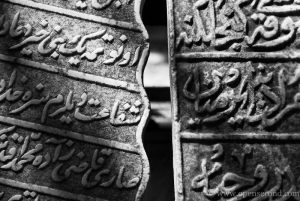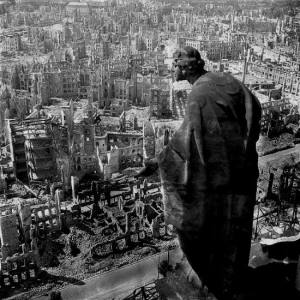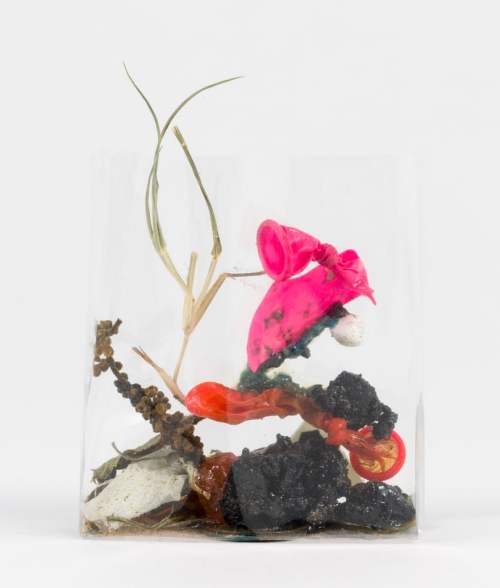I met some remarkable people in my life. During the late 70s, instigated by my then Sufi teacher, Fazal Inayat-Khan, I stayed with my then partner for two months in Washington DC, at the time when President Carter was inaugurated. Our contact person was Dr Abdul Aziz Said, Professor for International Relations at the American University. We saw him almost every day at his office at the University or at his lectures, or we met him at his home, and in other places. His sincerity had a great impact on me. His words never left me. He made us think about spiritual economy (of that another time) and he introduced us to some wonderful people, many of them Sufis , in the area in and around Washington DC.

Image by Yeshen Venema
Some were Muslims some were non-Muslims, some were Christians or Hindus, and others followed no religion but had faith in mankind. One day we were invited for a meal by a young couple, a practicing Muslim and his wife, a practicing Christian. Their loving relationship impressed me deeply. They lived what Sufis call the Greater Jihad, the inner struggle.
After the atrocity in Paris, having written realms of nonsense to try and clear my mind, I wondered what Professor Said had to say on the Islamic conflicts, I searched & re-found this yourtube video, where he addresses his students. It’s three years back but worth listening to twice. Here are some of his points:
- Communicate respect and share values. Peace has been conceptualised by dominant cultures. Seek conflict transformation.
- Insist on negotiating solutions, not impose them.
- Engage – don’t exploit the rivalry between Sunni and Shia Muslims.
- Westerners and Muslims could re-frame the conflict between Israelis and Arabs as an internal conflict within the Abrahamic family.
- Peace is a fragile flower. Use public diplomacy to listen … and speak.
- Build bridges through intercultural and interreligious dialogue, engage youth,
- It’s not enough to condemn radical religions, we need positive alternative visions.
- What does your religion bring to the table to deal with the issues of poverty, violence, and the environment?
He widens the perspective. East and the West must together become architects of a new story. The West could give the East the best it had to offer in exchange for the best the East has to offer. The idea is beautiful. I hope, with patience, it comes true.
Here are some of my present thoughts. I’m totally against bombings in Syria, as I was against the interference in Iraq. The problems of Islam are for the Arabs to sort amongst themselves, should have been from the start. In international conflicts the circular blame goes, ‘They hit us back first.’ Justified anger arises from having suffered abusive power, threats to livelihood, resources, security, chosen identity, religious or otherwise, or simply unbearable disillusionment, the loop has repeated itself throughout known history in the form of wars.
There is no denying the grit in the shells of democratic systems. Present irritations I observe in the UK are the dissemination of local community shops and enterprises, since anything small and beautiful can’t be economic, can it? Then the privatisation of essential resources, the absurd discrepancy between the rich and the poor, the lack of jobs due to a runaway technology, depriving innumerable young people of meaning. Add crime, insufficient support for mothers, depression and marginalisation … all in no small way due to excesses of a capitalism that feeds greed, consumerism and the exploitation of the earth. I’m not alone in feeling disheartened about such developments.
And yet, here’s the amazing thing, I can express my thoughts without being persecuted as an enemy of the state. Cognitive dissonance and the battle for tolerance are uncomfortable, but rewarding. Maybe because of their faults, democracies have an evolutionary edge. Here’s why?
Self-examination serves the growth of human qualities, or, if you like, the expansion of consciousness. I have an inner terrorist that battles with ambiguity, confusion, anger and vulnerability, at the same time I value being able to think independently. I feel privileged to live in a country where creativity and innovation are encouraged, individual voices can be heard, disagreements are allowed, and negotiations can be reached. Yes, hypocrisy and corruption are also rife, but with it the means to expose them.

Dresden, Feb 1945
Ideas can of course be subverted. Academics, innovators and scientists can’t control how their insights and inventions are applied, especially when social unrest becomes the manure for another utopian uprising, and more kneejerk reactions.
Are we brave enough to face the latent dangers of injustice, poverty and disillusionment that could call in another despot who sedates with propaganda and naive solutions that promise to solve all problems? For this reason, I think, a debate weighing the benefits of market-oriented enterprise against ways to curb the excesses of capitalism needs to happen, to search for a dynamic balance.
When it comes to the killing of civilians by militants in the name of Islam, ordinary Muslims do not condone these atrocities. Many may well be too dumbfounded and embarrassed to comment on the bizarre brainwashing of young the name of their faith, as in this video, which, however, given the puzzled expression on the children’s faces, I suspect has been commissioned to incite outrage in the west. I dearly hope Muslims will find ways to open a dialogue amongst themselves and with other faiths.
Lovers of life – don’t look away, don’t reject conflict and doubt, don’t numb your hearts. Secular societies with their temporary guardians, for better or worse, challenge us towards unlearning. Editing out complex thoughts will keep us stranded in the flatland of the known, unable to empathise with the physical and spiritual starvation suffered around the globe. Listen to the lecture of Dr Abdul Aziz Said again – and seek conflict transformation in all spheres of life.
One could say we are the particles of multiverses becoming conscious of embodied spirit. It’s no mean feat to shield our little lights from the winds of ignorance.
‘One does not become enlightened by imagining figures of light, but by making the darkness conscious.’ – C G Jung
‘We are not meant to agree with each other, but to create beauty.’ – Fazal Inayat-Khan
And I can’t help it, I admire the graceful poet and singer, Leonard Cohen, who loves his country though he can’t stand the scene. Here is … Anthem … Ring the bells that still can ring, forget your perfect offering – there’s a crack in everything, that’s how the light gets in …




 The eye-catching miniatures created by Yuji Agematsu pulled me back to my student phase in Munich during the 1970ies, when a group of friends looked out for small items like roots, twigs, leaves, seeds, grasses, feathers, stones, shells, dried or fresh flowers, the occasional bottle top or bits of shiny sweet wrappers, and sampled such bits into cellophane bags. We then handed these tiny poetry worlds to pedestrians or people sitting outside cafes in the then student district of Munich, Schwabing. It gave us thrill when recipients expressed a shock of surprise.
The eye-catching miniatures created by Yuji Agematsu pulled me back to my student phase in Munich during the 1970ies, when a group of friends looked out for small items like roots, twigs, leaves, seeds, grasses, feathers, stones, shells, dried or fresh flowers, the occasional bottle top or bits of shiny sweet wrappers, and sampled such bits into cellophane bags. We then handed these tiny poetry worlds to pedestrians or people sitting outside cafes in the then student district of Munich, Schwabing. It gave us thrill when recipients expressed a shock of surprise. In this
In this  Yuji’s search for trash treasures developed into a language that emotionally embraces urban archaeology. He attracts bits of litter we may regard with a smirk, mostly ignore or simply not notice. While his miniature installations are scaled down to finger size sculptures, the mind-expanding and transformative effect equals grand scale installations. My experience, apart from the cognitive surprise, was being left with a bodily sensation, a deep feeling connection with these miniatures.
Yuji’s search for trash treasures developed into a language that emotionally embraces urban archaeology. He attracts bits of litter we may regard with a smirk, mostly ignore or simply not notice. While his miniature installations are scaled down to finger size sculptures, the mind-expanding and transformative effect equals grand scale installations. My experience, apart from the cognitive surprise, was being left with a bodily sensation, a deep feeling connection with these miniatures.
 I have miniature installation in my home, on windowsills … unable to resist picking up feathers, seeds, leaves, driftwood, pebbles and so on, which often hold the story of an eternal moment in time.
I have miniature installation in my home, on windowsills … unable to resist picking up feathers, seeds, leaves, driftwood, pebbles and so on, which often hold the story of an eternal moment in time. A small black stone, for example, features prominently as a protagonist in my novel,
A small black stone, for example, features prominently as a protagonist in my novel, 
















